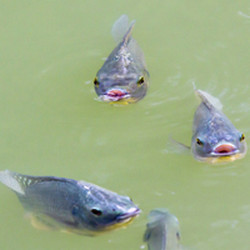Europe promotes sustainable seafood
Europe's huge demand for seafood means that much of it is now sourced from Asian fish and shrimp farms. This has resulted in Asia's aquaculture sector becoming a major source of employment and economic benefit to the countries concerned. Therefore, a study was conducted to develop an in-depth understanding of the value chains that link Asian producers to consumers in the EU. The 'Sustainable trade in ethical aquaculture' (SEAT)(opens in new window) project collated a detailed knowledge of Asian aquaculture and its sustainability characteristics. Research focused on four key species (shrimp, prawn, tilapia and catfish) and was conducted in four Asian countries (Bangladesh, China, Thailand and Vietnam). The EU-funded initiative included European and international partners. Researchers undertook in-depth field work, examining over 16 000 individual farming enterprises and countless other sources of primary data. The aim was to achieve representative datasets from which a series of recommendations on sustainability could be drawn up. These recommendations encompassed a range of issues, including contamination analyses, public health impact risks and environmental impacts from local pollution. SEAT also considered the global impact of resource utilisation. As the sustainability challenges became clearer, researchers worked closely with micro, small and medium-sized enterprises to address specific knowledge gaps. These ranged from understanding the constraints faced by farmers in keeping accurate records to improving traceability in shrimp supply chains. The consortium also developed an Ethical Aquatic Food Index (EAFI) for measuring sustainability, enabling customers to make better informed purchasing decisions. The EAFI was based on detailed research that centred on the life-cycle assessment of current processes. The technique was used to explore energy and material costs embedded in global value chains. By strengthening the knowledge base regarding EU–Asia seafood trade, SEAT outcomes offer the necessary evidence for further expansion. At the same time, they ensure a fair deal for producers who meet appropriate social and environmental targets, thereby offering consumers a safe and sustainable product. SEAT will therefore help to harmonise standards and allow consumers to make fully informed choices regarding the sustainability and safety of their seafood.







